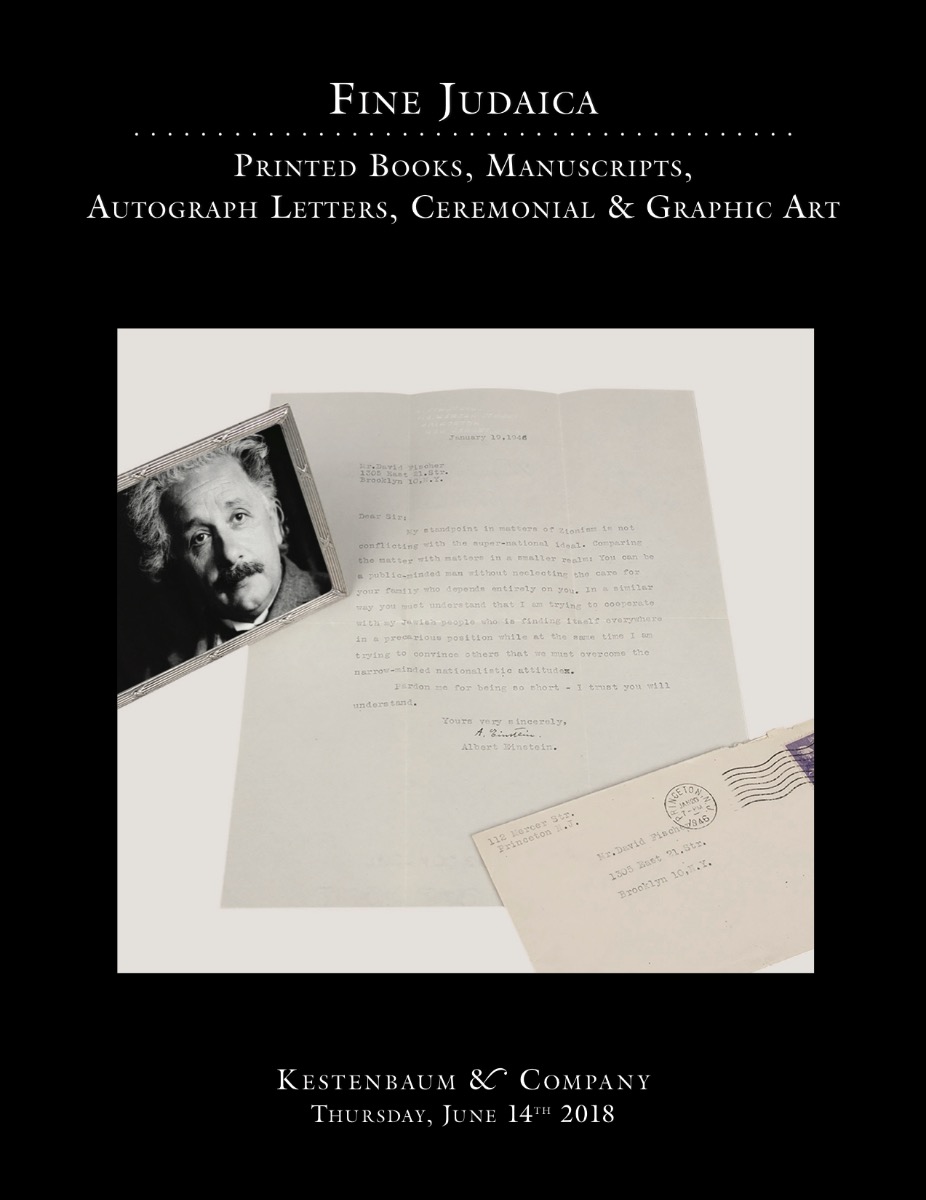Lebensgeschichte [“Autobiography.”] Edited by Karl P. Moritz.

AUCTION 76 |
Thursday, June 14th,
2018 at 3:00 PM
Fine Judaica: Printed Books, Manuscripts, Autograph Letters, Ceremonial & Graphic Art
Lot 216
MAIMON, SALOMON.
Lebensgeschichte [“Autobiography.”] Edited by Karl P. Moritz.
Berlin: Friedrich Viewig 1792-3
Est: $400 - $600
PRICE REALIZED $500
Salomon Maimon (1753–1800) was born into an Orthodox traditional life which he abandoned in order to pursue his stated search for philosophical truth. Maimon’s intellect propelled him to stardom - Immanuel Kant considering Maimon one of his most astute critics and in Berlin, Maimon became a member of Moses Mendelssohn’s inner circle of Jewish Enlightenment followers.
“Maimon’s most famous work remains his autobiography in which he presents his journey from Polish–Lithuanian Jewish culture toward the ideals of the Enlightenment. The text is one of the most valuable sources for the study of the life, traditions, and mentality of Polish Jews in the second half of the eighteenth century; it contains descriptions of arranged marriages, elementary education, the ascetic practices of old-style Hasidim, the life of a Jewish leaseholder, and an invaluable description of Maimon’s visit to the Hasidic court of Dov Ber, the Magid of Mezritsh. The work, however, was commissioned by Berlin’s Haskalah circles to present a stylized picture of the life of Jews in Poland, and was aimed to provide justification for programs to bring reforms to East European Jews. The author idealizes the social, cultural, and legal situation of Jews in Prussia, juxtaposing his descriptions with a purposefully negative picture of the fanaticism and so-called backwardness of Poland and Polish Jews. Maimon was especially critical of religious practices and beliefs, which in his opinion departed from the ideal of the natural and rational religion, which he claimed Judaism had once been. His autobiography influenced the reform proposals and the self-evaluation of maskilic circles, especially in Eastern Europe, as well as most of their ventures into the genre of autobiography.” (YIVO encyclopedia).
